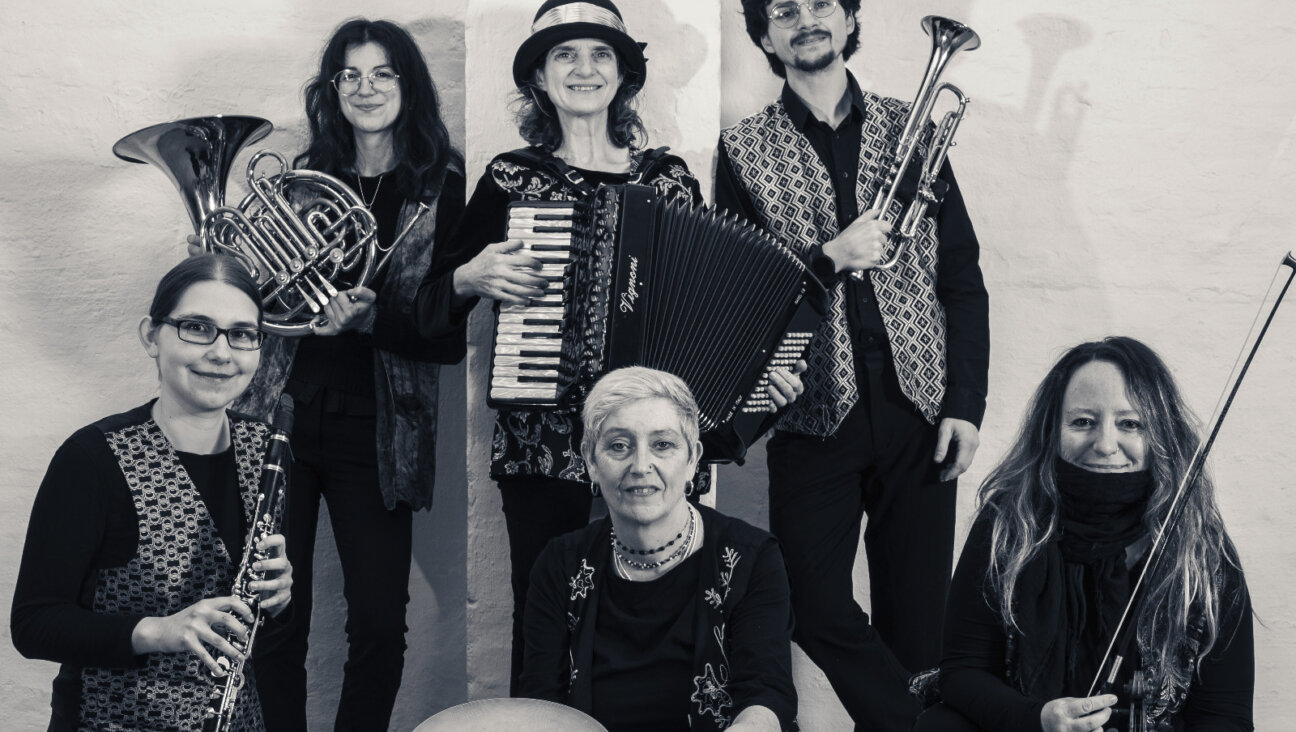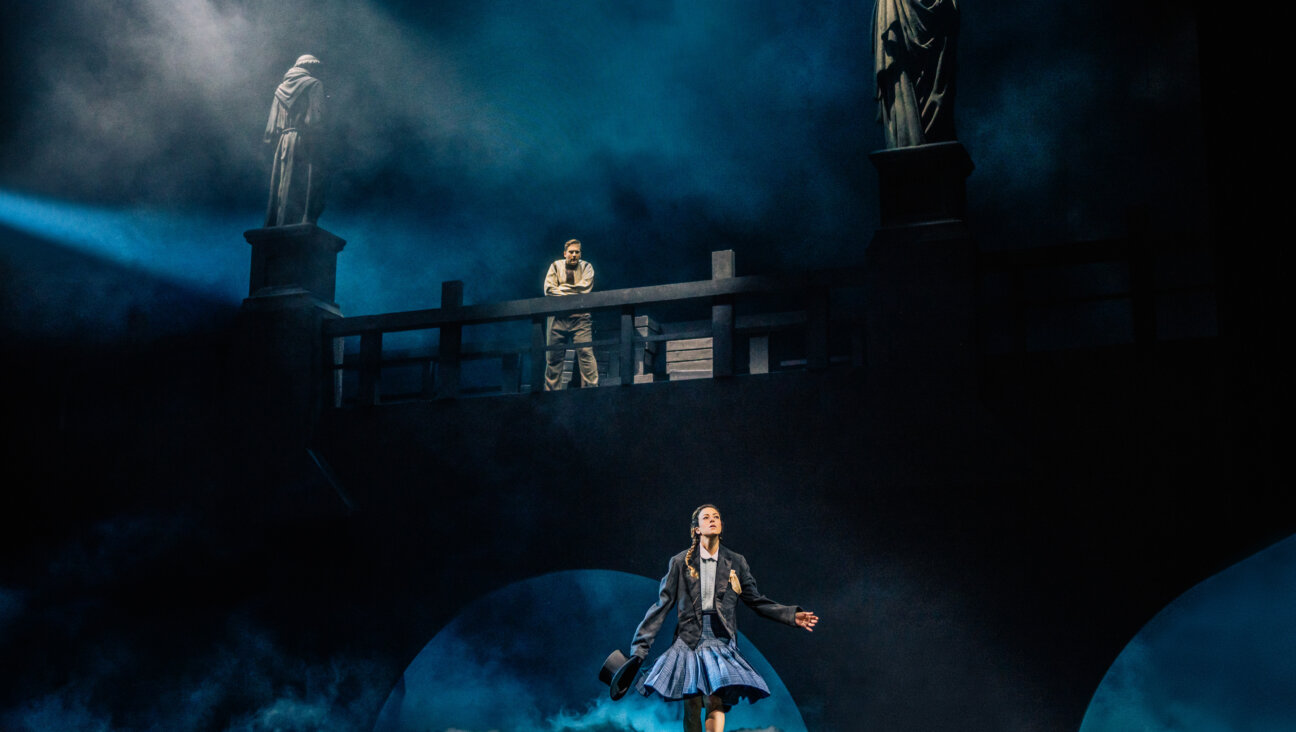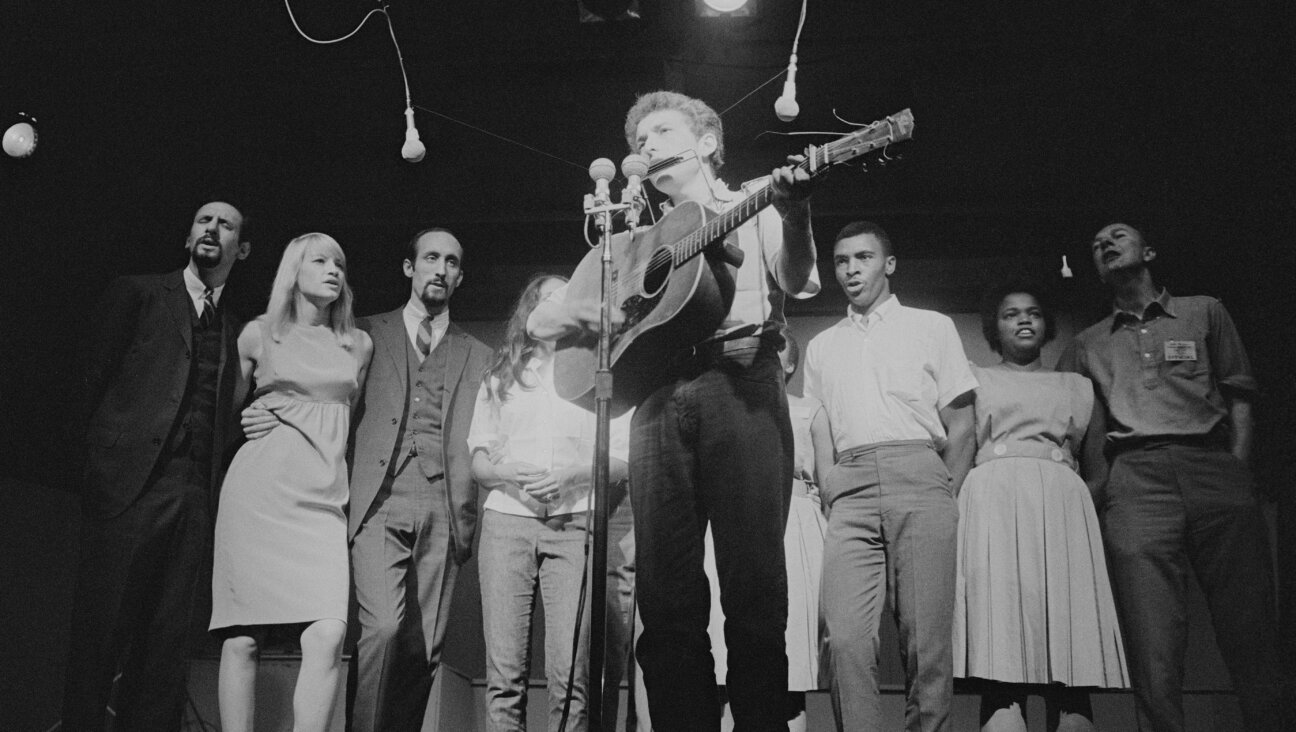Marissa Nadler Isn’t Afraid of the Dark

Graphic by Angelie Zaslavsky
Boston-based singer-songwriter Marissa Nadler, long a critical darling with a cult following, seems poised to cross over with the haunting “July,” (Sacred Bones) her sixth studio album in ten years. Reviews have been the strongest of her career; UK pop bible NME called “July” “a career high,” and the PopMatters blog dubbed it “one of 2014’s best albums so far… A triumph.” Pundits usually trip over themselves trying to describe Nadler’s dark, wry confessional folk; in just one review, music site Pitchfork name-checked Leonard Cohen, Joni Mitchell, Mazzy Star singer Hope Sandoval, German folkie Sibylle Baier — and Edgar Allan Poe.
Newly signed to high-profile music company Sacred Bones, Nadler is now a labelmate of indie royalty like David Lynch, Jim Jarmusch and Fleet Foxes, which makes the acid opening lines of “July” feel a bit ironic: “If you ain’t made it now / You’re never gonna make it.” The Forward caught up with the singer by email between gigs in New England to support her new album. “And I’m doing the driving as well!” she said.
Michael Kaminer: Journalists seem to grasp at descriptions for your music. If you had to introduce yourself and your music to our audience in a couple of sentences, how would it read?
Marissa Nadler: Deceptively soothing on first listen, but with a much heavier and darker upon further inspection. There is a lot of atmosphere in my music. I’m most focused on writing memorable songs, devoid of genre classification.
One recent review quoted lines like, “Changed in a rest-stop into my dress / Made sure not to touch the floor / I’ve done that kind of thing before.” How much of your songwriting is a character’s voice, and how much draws on your experiences?
Nowadays, it’s pretty much all my own voice. The song you mention is absolutely a first-person account. I try to be as honest and as pure as possible without being confessional to the point of vomit. There’s a fine line between sincerity and sentimentality and that’s the balance that I try to strike. I don’t want these songs to sound like journal entries, but I also want people to be able to relate to them. I avoid being ironic and intentionally obtuse in my songwriting these days, as some of my favorite songs are straight to the point and cut close to the bone.
You’ve made a ton of best-of lists, and reviews — for “July” and other albums — have been stellar. What have you not done that you still want to do, career-wise?
I would like to work on making soundtracks for movies. Maybe my label mate David Lynch will hit me up, or Jim Jarmusch, also on Sacred Bones. I also wouldn’t mind being a professor of fine art at RISD, where I went to school, when I’m too old to tour!
Do you draw on any Jewish sources for your music or songwriting?
Not directly. Though I think there’s a certain genetic memory that has me gravitating towards the minor keys!
Can you tell us about your Jewish upbringing?
Well… I’m not particularly religious, though I grew up infused in the culture. I love the Hebrew language, and I do read and write it. I think there’s a beauty in continuing a cultural tradition.
I saw Billboard’s review of “July” on the same page as its Annual List of Top Jewish Musicians. Billy Joel was #1; Adam Levine, Paula Abdul, and Michael Bolton rounded out the list. Who would be on yours?
Leonard Cohen and Bob Dylan. At least that’s their heritage….
You’re listed as your own press contact, and your web site has a ton of links — Facebook, YouTube, Etsy, more. How do you find time to make music?
It goes in cycles. Right now I’m definitely a bit exhausted but I’m planning a residency in the winter in a warm weather climate to exclusively focus on writing a new record.
Your mother’s an artist, your brother’s a writer, and you taught art at a school in Harlem, according to one bio I read. How has art informed your songwriting?
I think to put it simply, the way that I view the world is through the eyes of a painter. That was my first love, that was what I went to school for. My lyrics are painterly, and my approach is from the heart and not the head. I actually still teach fine art three days a week until the end of the year at a therapeutic high school. I guess it’s more of an art therapy position than anything else.
In a world of Rihannas and Miley Cyruses, what’s it like trying to build a profile with a more contemplative persona and music?
I think there’s room in the game for all different kinds of music. I view myself more as a songwriter and less as a performer. I’m not a born exhibitionist. It just depends what kind of music people are in the mood for, I guess.
















